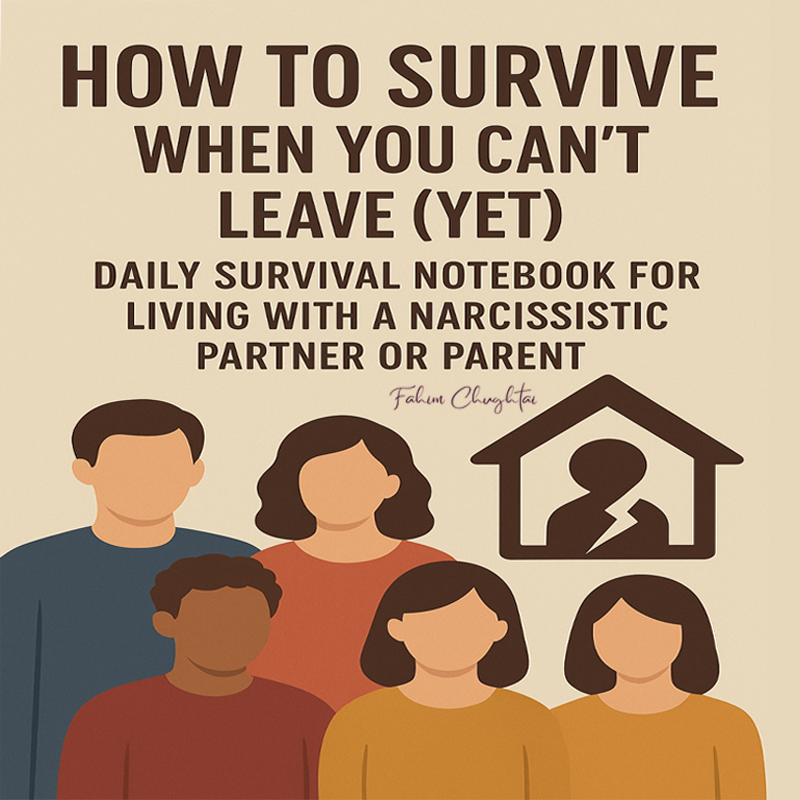Have you ever found yourself questioning your own reality after interactions with someone who seems caring on the surface but leaves you feeling drained, confused, or walking on eggshells? You might be dealing with covert passive aggressive narcissist traits—a particularly insidious form of psychological manipulation that often goes unrecognized for years.
- What Makes Covert Passive Aggressive Narcissist Traits So Dangerous?
- The Psychology Behind Covert Passive Aggressive Behavior
- 15 Hidden Covert Passive Aggressive Narcissist Traits
- The Impact on Relationships and Mental Health
- Why Traditional Communication Strategies Fail
- Recognition and Validation: The First Step to Healing
- Understanding Trauma Bonding in These Relationships
- Setting Boundaries and Protecting Yourself
- The Role of Flying Monkeys and Social Manipulation
- When Professional Help Becomes Necessary
- Moving Forward: Recovery and Rebuilding
- Frequently Asked Questions
- Conclusion: Your Path to Freedom and Clarity
Unlike their overt counterparts who demand attention through grandiose displays, covert passive aggressive narcissists operate in the shadows, using subtle manipulation tactics that make you question your own perceptions. Understanding these hidden traits is crucial for protecting your emotional well-being and making informed decisions about your relationships.
What Makes Covert Passive Aggressive Narcissist Traits So Dangerous?
Covert narcissism represents one of the most challenging personality patterns to identify because it masquerades as sensitivity, vulnerability, or even victimhood. When combined with passive-aggressive behavior, these traits create a toxic cocktail of manipulation that can systematically erode your confidence and sense of reality over months or years.
These individuals crave admiration and control just as much as overt narcissists, but they pursue these goals through indirect means. They present themselves as misunderstood, overlooked, or unappreciated while simultaneously undermining others through subtle psychological warfare.
Am I Dealing With a Covert Narcissist — or Just Toxic Behavior?
The passive-aggressive component adds another layer of complexity, as they express anger, resentment, and control through indirect actions rather than open confrontation. This makes their behavior particularly confusing and difficult to address directly.
The Psychology Behind Covert Passive Aggressive Behavior
Research in personality psychology reveals that covert passive aggressive narcissist traits stem from deep-seated insecurity masked by an inflated sense of specialness. These individuals experience what psychologists call “vulnerable narcissism”—they simultaneously feel superior to others while being hypersensitive to any perceived criticism or slight.
The passive-aggressive element serves as their preferred method of expressing displeasure while maintaining plausible deniability. They can hurt others while appearing innocent or even victimized themselves. This behavioral pattern often develops as a defense mechanism against feelings of powerlessness, but it becomes a destructive cycle that harms both the narcissist and those around them.
Understanding this psychological foundation helps explain why these individuals are so resistant to change and why their behavior patterns feel so deeply ingrained and automatic.
15 Hidden Covert Passive Aggressive Narcissist Traits
1. The Victim Mentality Mask
One of the most prominent covert passive aggressive narcissist traits is their ability to position themselves as the perpetual victim. They consistently frame situations to emphasize how they’ve been wronged, overlooked, or misunderstood. This victim stance serves multiple purposes: it deflects responsibility, garners sympathy, and makes others hesitant to confront their behavior.
You’ll notice they have endless stories about how others have treated them unfairly—previous partners, employers, friends, or family members. Rarely do they acknowledge their own role in relationship conflicts or problems.
2. Backhanded Compliments and Subtle Insults
Covert narcissists excel at delivering compliments that feel like insults or observations that undermine your confidence. They might say things like “You look so much better today” or “I’m surprised you handled that so well.” These comments are carefully crafted to sound supportive while actually suggesting inadequacy.
This trait is particularly damaging because it’s hard to address directly without seeming oversensitive, which is exactly what they’re counting on.
3. The Silent Treatment as Punishment
When covert passive aggressive narcissists feel slighted or want to assert control, they often resort to withdrawal and silence rather than direct confrontation. This emotional withdrawal serves as punishment and forces others to chase after them, apologize, or modify their behavior to restore the relationship.
The silent treatment can last for hours, days, or even weeks, depending on the perceived offense. It’s a particularly cruel form of emotional manipulation because it denies the other person the opportunity to resolve the conflict through communication.
4. Selective Memory and Gaslighting
These individuals demonstrate remarkable selective memory, conveniently forgetting promises they made, hurtful things they said, or agreements they previously accepted. When confronted, they might respond with phrases like “I never said that” or “You’re remembering it wrong.”
This gaslighting behavior is designed to make you question your own memory and perception of events. Over time, this can severely undermine your confidence in your own judgment and recollection of reality.
5. Emotional Manipulation Through Guilt
Covert passive aggressive narcissists are masters at making others feel guilty for setting boundaries, expressing needs, or making decisions they don’t agree with. They might use phrases like “After everything I’ve done for you” or “I guess my feelings don’t matter.”
This guilt manipulation is often disguised as hurt feelings or disappointment, making it seem like you’re being unreasonable or ungrateful for normal relationship expectations.
6. Chronic Procrastination and “Forgetting”
When asked to do something they don’t want to do, these individuals often agree in the moment but then procrastinate indefinitely or conveniently “forget” about the commitment. This allows them to avoid direct refusal while still maintaining control over the situation.
This pattern extends to important commitments, household responsibilities, and promises made to partners or family members. The repeated “forgetting” is rarely truly accidental.
7. Undermining Others’ Success and Happiness
Covert passive aggressive narcissists have difficulty celebrating others’ achievements genuinely. When you share good news, they might respond with indifference, change the subject to their own problems, or find ways to diminish your accomplishment.
They might say things like “That’s nice, but wait until you see what real challenges are ahead” or find reasons why your success wasn’t entirely deserved or won’t last.
8. Playing the Martyr Role
These individuals often position themselves as making great sacrifices for others while emphasizing how unappreciated they feel. They might say things like “I do everything for everyone and no one cares” or “I guess I’ll just handle it myself like always.”
This martyr complex serves to make others feel guilty while elevating their own self-image as long-suffering and selfless.
9. Conditional Love and Support
Love and support from covert passive aggressive narcissists often comes with strings attached. They’re supportive when you’re doing what they want or when it serves their interests, but withdraw emotional support when you make decisions they disapprove of.
This conditional approach to relationships creates an environment where you feel like you must earn their love and approval through compliance rather than receiving unconditional acceptance.
10. Hypersensitivity to Criticism
Despite their ability to dish out subtle criticism, these individuals are extremely sensitive to any form of feedback or critique directed at them. They might respond to gentle suggestions with hurt feelings, defensiveness, or accusations that you’re being mean or unsupportive.
This hypersensitivity makes it virtually impossible to address relationship issues or request changes in behavior without triggering an emotional crisis.
11. Covert Competition and Comparison
Covert passive aggressive narcissists engage in constant, subtle competition with those around them. They might downplay your achievements while highlighting their own struggles or successes. They often frame situations as competitions that others weren’t even aware they were participating in.
This competitive nature extends to seeking sympathy, appearing more knowledgeable, or being seen as more virtuous or long-suffering than others.
12. Emotional Withholding
These individuals often withhold emotional intimacy, affection, or validation as a form of control. They might become emotionally distant when they’re displeased, leaving partners or family members confused about what they did wrong and desperately seeking reconciliation.
This emotional withholding creates a dynamic where others must constantly work to earn basic emotional needs being met.
13. Projection of Their Own Behavior
Covert passive aggressive narcissists frequently accuse others of the exact behaviors they exhibit themselves. They might call others selfish, manipulative, or unreasonable while demonstrating these same traits consistently.
This projection serves to deflect attention from their own behavior while making others question whether they might indeed be the problem in the relationship.
14. False Empathy and Concern
While they might appear empathetic in certain situations, their concern is often conditional and self-serving. They show empathy when it makes them look good or when they can gain something from the situation, but are notably absent during times when genuine support is needed without recognition.
This selective empathy often focuses on public displays of caring while being absent in private moments when real support is needed.
15. Creating Chaos While Appearing Innocent
Perhaps the most insidious trait is their ability to create drama, conflict, and chaos while maintaining plausible deniability. They might make comments that they know will cause problems, “forget” important information that leads to conflicts, or make promises they have no intention of keeping.
When confronted about the chaos they’ve created, they appear genuinely confused or hurt that anyone would suggest they caused problems intentionally.
The Impact on Relationships and Mental Health
Living with or being in a relationship with someone who exhibits covert passive aggressive narcissist traits can have profound effects on your mental health and overall well-being. Victims often report feeling constantly on edge, questioning their own perceptions, and experiencing anxiety about triggering another episode of manipulative behavior.
The subtle nature of this abuse means that victims often struggle to articulate what’s wrong or feel validated in their concerns. Friends and family might not understand the extent of the manipulation because the covert narcissist presents differently in public settings.
Common effects include decreased self-esteem, difficulty trusting your own judgment, chronic stress, depression, and anxiety. Many victims find themselves walking on eggshells constantly, trying to prevent conflicts that seem to arise unpredictably.
Why Traditional Communication Strategies Fail
One of the most frustrating aspects of dealing with covert passive aggressive narcissist traits is that normal communication and conflict resolution strategies simply don’t work. These individuals aren’t interested in genuine resolution or compromise—they’re invested in maintaining their sense of superiority and control.
Attempting direct communication often results in denial, deflection, or victim-blaming. They might agree to changes in the moment to end an uncomfortable conversation, but rarely follow through on commitments. This leaves partners and family members feeling unheard and powerless to create positive change in the relationship.
Recognition and Validation: The First Step to Healing
If you recognize these patterns in your own relationships, it’s important to understand that you’re not imagining things, and you’re not responsible for someone else’s manipulative behavior. Covert passive aggressive narcissist traits are real, documented patterns of behavior that cause genuine harm to those who experience them.
Professional support can be invaluable in helping you process these experiences and develop strategies for protection and healing. Many people find that working with a therapist who understands narcissistic abuse helps them regain their sense of reality and self-worth.
For those seeking clarity about their specific situation, a comprehensive analysis of your relationship dynamics can provide the validation and understanding you need. Understanding exactly what you’re dealing with is often the first step toward making informed decisions about your future.
Understanding Trauma Bonding in These Relationships
One of the reasons it’s so difficult to leave relationships with covert passive aggressive narcissists is the development of trauma bonds. These psychological bonds form through cycles of abuse and intermittent reinforcement—periods of kindness or affection that follow episodes of manipulation or emotional withdrawal.
The unpredictable nature of when they’ll be loving versus manipulative creates a psychological dependency similar to addiction. Your brain becomes conditioned to crave their approval and to interpret their occasional kindness as signs of genuine change or improvement.
Breaking these trauma bonds requires understanding that they’re not based on genuine love or connection, but rather on psychological conditioning created through manipulation. Professional resources and structured approaches to recovery can help individuals break free from these addictive relationship patterns.
Recovery from trauma bonding involves rewiring your brain’s response to the manipulative cycles and learning to trust your own perceptions again. This process takes time, patience, and often professional support, but complete freedom is possible.
Setting Boundaries and Protecting Yourself
When dealing with someone who exhibits covert passive aggressive narcissist traits, traditional boundary-setting approaches need modification. These individuals often don’t respect direct boundaries and may interpret them as invitations for more subtle manipulation.
Effective boundaries with covert narcissists focus more on your own behavior and responses rather than trying to control theirs. This might include limiting information you share, reducing your availability for their dramatic crises, or refusing to engage in discussions designed to make you question your own perceptions.
Gray rock techniques—becoming as uninteresting and unresponsive as possible—can be effective in reducing their attempts to manipulate or control you. When you don’t provide the emotional reactions they’re seeking, they often lose interest and move on to easier targets.
It’s important to document interactions and decisions to protect yourself against gaslighting attempts. Having records of conversations, agreements, and behaviors can help you maintain your sense of reality when they attempt to rewrite history.
The Role of Flying Monkeys and Social Manipulation
Covert passive aggressive narcissists often recruit others to reinforce their manipulative tactics, commonly referred to as “flying monkeys.” These individuals might be mutual friends, family members, or colleagues who unknowingly participate in the manipulation by carrying messages, pressuring you to reconcile, or validating the narcissist’s victim narrative.
Still Living With Them? You’re Not Helpless.

Understanding this dynamic helps you recognize when you’re being manipulated through third parties and avoid taking their interventions at face value. Often, these flying monkeys have received a very different version of events and don’t understand the full context of the situation.
Protecting yourself might involve limiting information shared with mutual acquaintances or being prepared to calmly present your perspective when others try to mediate or intervene on the narcissist’s behalf.
When Professional Help Becomes Necessary
If you’re experiencing symptoms like chronic anxiety, depression, confusion about your own perceptions, or difficulty making decisions after prolonged exposure to covert passive aggressive narcissist traits, professional support is strongly recommended.
You’ve Seen the Patterns. Now Break the Bond.
Therapists who specialize in narcissistic abuse understand the unique challenges these relationships present and can help you develop effective coping strategies. They can also help you process the complex emotions involved in recognizing that someone you cared about was systematically manipulating you.
Support groups for survivors of narcissistic abuse can provide valuable validation and practical strategies from others who have had similar experiences. Knowing that you’re not alone in this experience can be incredibly healing.
Moving Forward: Recovery and Rebuilding
Recovery from relationships involving covert passive aggressive narcissist traits typically involves several phases. Initially, there’s often a period of confusion and grief as you process the reality of what you experienced. This is followed by anger as you recognize the extent of the manipulation, then eventually acceptance and rebuilding.
The rebuilding phase involves reestablishing trust in your own perceptions, learning to recognize healthy relationship patterns, and developing stronger boundaries for future relationships. This process takes time, and it’s important to be patient with yourself as you heal.
Many survivors find that their experience ultimately leads to greater self-awareness, stronger boundaries, and an increased ability to recognize healthy versus unhealthy relationship dynamics. While the experience itself is painful, the growth that can result from recovery is often profound and lasting.
Frequently Asked Questions
Q: Can covert passive aggressive narcissists change their behavior? A: While personality change is theoretically possible, it requires genuine recognition of the problem and sustained commitment to therapy. Unfortunately, the nature of narcissistic traits makes this level of self-awareness and motivation extremely rare.
Q: How do I know if I’m overreacting to normal relationship problems? A: Trust your instincts. If you consistently feel confused, anxious, or like you’re walking on eggshells in a relationship, these are valid concerns regardless of whether the other person has a personality disorder.
Q: What’s the difference between occasional passive-aggressive behavior and these narcissistic traits? A: Everyone can exhibit passive-aggressive behavior occasionally. The difference lies in the consistency, intensity, and underlying motivations. Covert narcissistic patterns are pervasive, intentional, and designed to maintain superiority and control.
Q: Is it safe to confront someone about these behaviors directly? A: Direct confrontation rarely leads to positive change and often escalates manipulative tactics. Focus on protecting yourself through boundaries rather than trying to change their behavior.
Q: How long does recovery typically take? A: Recovery is highly individual and depends on factors like the length and intensity of the relationship, your support system, and whether you seek professional help. Many people notice significant improvement within 6-12 months with appropriate support.
Conclusion: Your Path to Freedom and Clarity
Recognizing covert passive aggressive narcissist traits is the first crucial step toward protecting your emotional well-being and making informed decisions about your relationships. These subtle but destructive patterns of behavior can cause significant psychological harm, but understanding them empowers you to respond effectively.
Remember that you deserve relationships built on mutual respect, genuine empathy, and healthy communication. If you’re currently questioning your reality or feeling trapped in a relationship that consistently leaves you feeling drained and confused, trust those feelings as valid indicators that something needs to change.
Your mental health and emotional well-being are worth protecting. With the right knowledge, support, and strategies, it’s absolutely possible to break free from these destructive patterns and build healthier, more fulfilling relationships in your future.
The journey toward healing and freedom begins with recognition, continues with professional support when needed, and ultimately leads to a life where your perceptions are trusted, your boundaries are respected, and your emotional needs are genuinely






